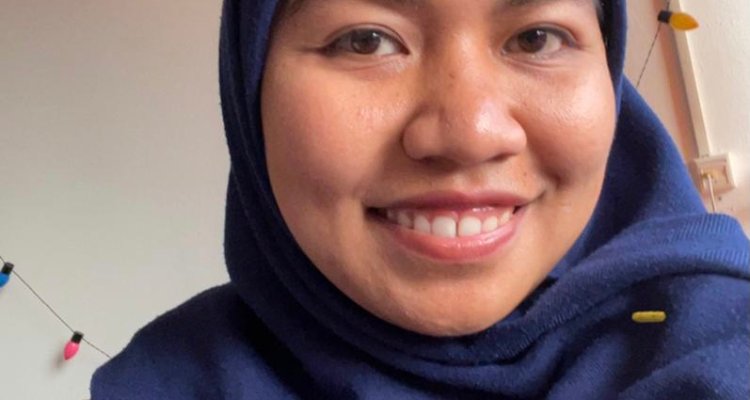
Student testimonial
Sri Wahyuni: Another aspect that I appreciated was thepositiveand collaborative environment.
I am very fortunate to have a chance to do my thesis and research practice in the Laboratory of Nematology at WUR. Not only did I learn a lot of the fascinating world of nematology, but I also gained valuable skills and insights that I will carry with me throughout my career. My positive experiences during my thesis last year had led me to also do my research practice in this laboratory.

Another aspect that I appreciated was the positive and collaborative environment.
In my country, Indonesia, nematology is not a widely studied field. While pursuing my bachelor’s degree in biology some years ago, I only encountered nematode in one chapter of my Invertebrate Zoology course. My interest in nematodes was piqued when I took the Molecular Aspects of Bio-Interactions course here during the first year of my master’s study at WUR. I was fascinated by how these organisms develop their strategy in their parasitism. This motivated me to delve deeper into nematology and seek opportunities to conduct my thesis in this field. Therefore, I contacted the laboratory of nematology chairgroup of WUR to ask for a thesis opportunity, and fortunately I got it.
The atmosphere in the laboratory of nematology is very supportive, which made it easy for me to ask questions and seek guidance. The mentorship I received from my supervisors was invaluable, and they always took the time to explain complex concepts and methods in a way that was easy for me to understand. Another aspect that I appreciated was the positive and collaborative environment. Every once a week there is thesis ring for students, where the students give and receive feedbacks for each other’s writings. This helps me a lot to be more critical in my writing. Furthermore, in my research group, there was a meeting every twice a week to give an update of our progress. We would get a valuable input from others during the meeting. This sense of community not only made my time in the laboratory more enjoyable but also helped me to develop communication skills.
Through my thesis and research practice, I gained a great deal of technical knowledge and skills in the field of nematology. During my thesis, I observe how plants can be tolerant to cyst nematode infection. Meanwhile, during my research practice, I learn how to screen plants against root lesion nematode. Together with my supervisors, we tried to develop protocols in screening the plants. It was challenging, but also exciting. Overall, I learned how to conduct various assays, observing plant-nematode interactions, and analyze data using different software tools. I also developed a deeper understanding of the fundamental aspect of nematode and the challenges associated with their control.
But beyond the technical skills, my thesis and research practice taught me important soft skills that will be invaluable in my future career. For instance, I learned how to work more effective, communicate clearly, and to think critically. I also gained more confidence in myself and my abilities, which will not be possible without the help from the supportive environment I was in. These soft skills will hopefully serve me well in my future endeavors as a scientist.
Overall, I am incredibly grateful for the opportunity to learn in the Laboratory of Nematology at WUR. The experience has not only helped me grow academically and professionally, but it has also given me lifelong memories. I am forever thankful for this experience. Also, I always recommend Nematology for students who are looking for supportive environment and rewarding research experience.